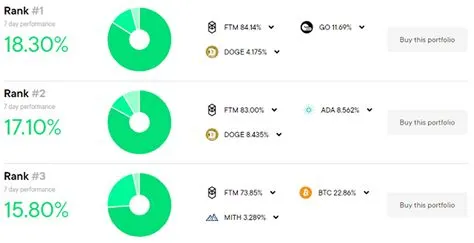Hey there! Ever feel like you’re juggling chainsaws while riding a unicycle? Life can be intense, right? Between work deadlines, family commitments, and the general chaos of modern living, it’s easy to let your mental wellbeing slide. But what if I told you there’s a simple, accessible way to prioritize your mental health – all from the comfort of your phone? That’s where mental fitness apps come in.
Think of mental fitness apps as your personal pocket-sized therapists, coaches, and cheerleaders, all rolled into one convenient package. They’re not replacements for professional help – we’ll get to that crucial point later – but they can be incredibly powerful tools for managing stress, boosting mood, and cultivating a more positive mindset. And let’s be honest, who doesn’t need a little more positivity in their lives?
So, what exactly are these apps? They offer a wide range of features, depending on your needs and preferences. Some focus on mindfulness and meditation, guiding you through exercises to calm your racing thoughts and center yourself. Imagine it as a digital spa day for your brain! Others concentrate on cognitive trends">behavioral therapy (CBT) techniques, helping you identify and challenge negative thought patterns. Think of it as a mental decluttering session – getting rid of the mental junk that weighs you down. Still others offer journaling prompts, mood trackers, and even sleep aids, creating a holistic approach to mental well-being.
But with so many apps out there, how do you choose the right one for you? It’s like choosing a pair of shoes – you wouldn’t pick hiking boots for a night out dancing, would you? The best app for you will depend on your individual needs and preferences. Do you struggle with anxiety? There are apps specifically designed to address that. Do you want to improve your sleep? There are apps for that too! Do you need help managing your stress levels? Yup, apps for that as well. Consider your specific goals and read reviews before diving in. A little research can save you a lot of time and frustration.
One of the biggest benefits of mental fitness apps is accessibility. Unlike traditional therapy, which often involves scheduling appointments and traveling, these apps are available 24/7, wherever you are. Need a quick anxiety-busting exercise during your lunch break? No problem. Feeling overwhelmed before bed? There’s an app for that. This accessibility makes them a great option for people with busy schedules or those who might find it difficult to access traditional mental health services.
However, it’s crucial to remember that mental fitness apps are not a cure-all. They are tools, and powerful ones at that, but they shouldn’t replace professional help when necessary. If you’re struggling with severe mental health issues, such as depression, anxiety disorders, or suicidal thoughts, it’s imperative to seek professional help from a therapist or psychiatrist. These apps can complement professional treatment, but they shouldn’t be relied upon as the sole source of support. Think of them as a supportive friend, offering encouragement and guidance, but not a replacement for a qualified medical professional.
Another important consideration is the privacy of your data. Many of these apps collect data about your usage and mental health. It’s vital to read the privacy policy carefully before downloading and using any app. Understand how your data is being used and protected. Your mental health is personal and deserves to be treated with the utmost respect and confidentiality.
So, how can you effectively integrate mental fitness apps into your daily routine? Start small. Don’t try to do everything at once. Begin by incorporating just one or two features into your daily schedule. Maybe it’s a five-minute meditation session in the morning or a quick journaling exercise before bed. Consistency is key. Just like building physical fitness, building mental fitness takes time and effort. Be patient with yourself and celebrate your progress along the way.
Think of it like this: your mental health is a garden. You wouldn’t expect a lush, vibrant garden to sprout overnight, would you? It needs consistent nurturing, tending, and attention. Mental fitness apps can be the tools you use to water, weed, and cultivate your mental garden, helping it grow strong and flourish.
Furthermore, remember that not every app is created equal. Some are packed with features, while others keep things simple. Some have sleek designs, others are more utilitarian. Read reviews, compare features, and consider your personal preferences before committing to a subscription. Don’t be afraid to try a few different apps until you find one that truly clicks with you.
In conclusion, mental fitness apps offer a readily accessible and convenient way to prioritize your mental well-being. They’re powerful tools that can help you manage stress, boost your mood, and cultivate a more positive mindset. However, remember that they are not a replacement for professional help. They should be viewed as a supplement to a healthy lifestyle, not a cure-all. By integrating these apps thoughtfully into your routine, you can take a proactive step toward cultivating a happier, healthier you. So, why not give it a try? Your mind will thank you for it.
Frequently Asked Questions
Q1: Are mental fitness apps safe?
A1: Most reputable mental fitness apps prioritize user data privacy and security. However, it’s always crucial to read the app’s privacy policy before downloading and using it. Be mindful of the information you share and choose apps from established developers with a strong reputation.
Q2: Do I need a prescription to use a mental fitness app?
A2: No, you generally do not need a prescription to use a mental fitness app. These apps are designed to be accessible to anyone who wants to improve their mental well-being. However, remember that these apps are not a substitute for professional treatment if you have a serious mental health condition.
Q3: How much do mental fitness apps cost?
A3: The cost varies greatly depending on the app and its features. Some apps offer a free version with limited features, while others require a subscription for full access. Many offer free trials, allowing you to explore the app before committing to a payment.
Q4: Can mental fitness apps help with specific conditions like anxiety or depression?
A4: While mental fitness apps cannot cure conditions like anxiety or depression, they can be helpful tools in managing symptoms and improving overall mental well-being. Many apps offer features specifically designed to address these conditions, such as guided meditations, CBT techniques, and mood tracking tools. It’s crucial to remember that these apps should complement, not replace, professional treatment.
Q5: How do I know which mental fitness app is right for me?
A5: The best way to find the right app for you is to do some research. Read reviews, compare features, and consider your individual needs and preferences. Many apps offer free trials, which is a great way to test them out before committing to a subscription. Don’t be afraid to try a few different apps until you find one that fits your lifestyle and goals.

